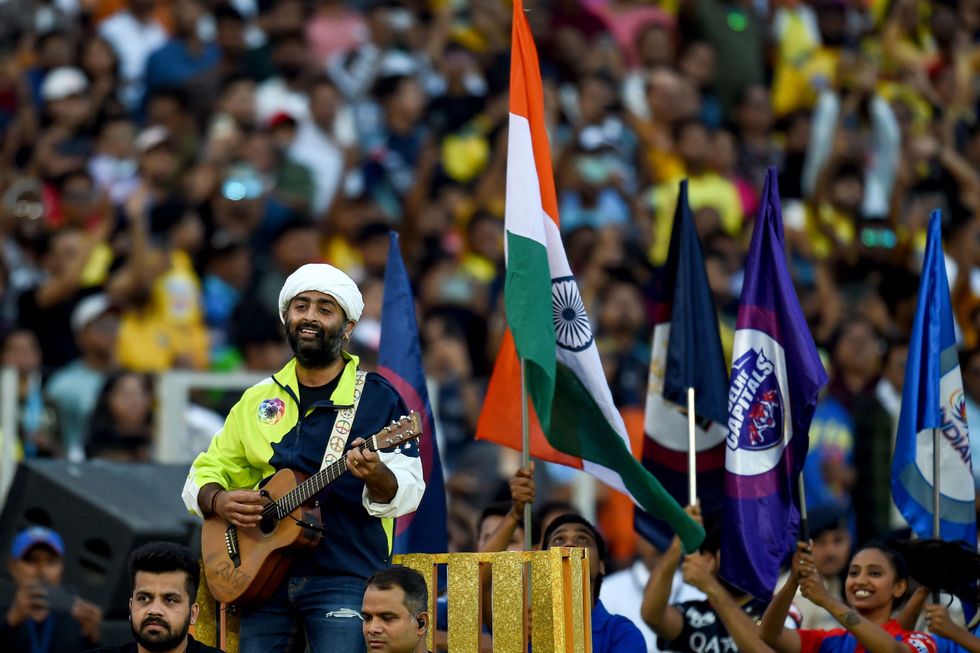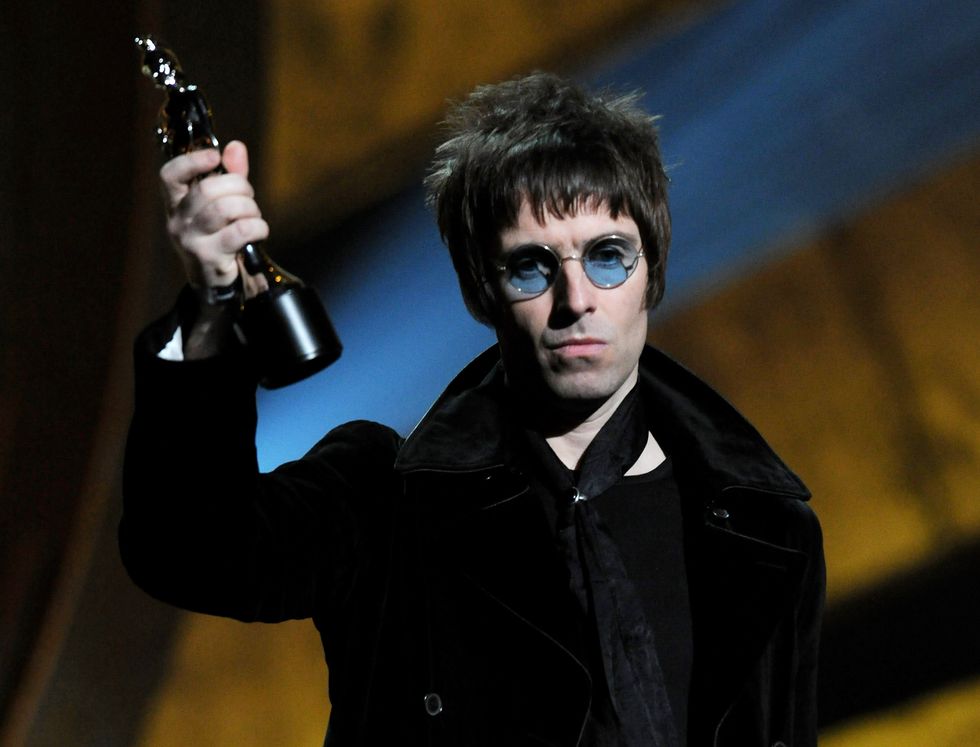INDIA rejected a bitterly negotiated climate deal on Sunday (24), when countries at the COP29 summit in Baku adopted a $300 billion a year global finance target to help poorer nations cope with impacts of climate change.
After two exhausting weeks of chaotic bargaining and sleepless nights, nearly 200 nations pushed through the contentious finance pact in the early hours in a sports stadium in Azerbaijan.
However, developing and poorer nations most at the frontline of worsening disasters dismissed the $300 billion a year pledge from wealthy historic polluters as insultingly low.
"It's a paltry sum," thundered India's delegate Chandni Raina.
"This document is little more than an optical illusion. This, in our opinion, will not address the enormity of the challenge we all face."
Raina, an adviser at India’s Department of Economic Affairs, described the adoption process as "unfair" and "stage-managed" and added that it reflected the troubling lack of trust in the UN system.
Throughout COP29, developed nations - major economies like the European Union, the US and Japan - were accused of negotiating in bad faith, making a fair deal impossible.
Sierra Leone's climate minister Jiwoh Abdulai said the final agreement showed a "lack of goodwill" from rich countries to stand by the world's poorest as they confront rising seas and harsher droughts.
Nigeria's envoy Nkiruka Maduekwe put it even more bluntly: "This is an insult."
Nations had struggled at COP29 to reconcile long-standing divisions over how much developed nations most accountable for historic greenhouse gas pollution should provide to poorer countries least responsible but most impacted by earth's rapid warming.
The meeting also saw stalling on the promise to "transition away" from fossil fuels, the main driver of global heating.
That pledge, a key achievement of COP28 in Dubai, was scrubbed from the final Baku deal.
US president Joe Biden cast the agreement reached in Baku as a "historic outcome", while EU climate envoy Wopke Hoekstra said it would be remembered as "the start of a new era for climate finance".
UK energy secretary Ed Miliband hailed "a critical eleventh-hour deal at the eleventh hour for the climate".
However, the Least Developed Countries bloc of 45 nations slammed the COP29 outcome as a "travesty", adding that it failed to make progress on curbing warming, or deliver enough cash to protect the most vulnerable.
"This is not just a failure; it is a betrayal," the group said in a statement.
India said its request to speak before the adoption of the climate finance package was ignored.
"We had informed the presidency and the secretariat that we wanted to make a statement before any decision on the adoption. However, and this is for everyone to see, this has been stage-managed, and we are extremely disappointed with this incident," Raina said.
"We have seen what you have done. However, we would want to say that gavelling and trying to ignore parties from speaking does not behove of the UNFCCC (United Nations Framework Convention on Climate Change) system, and we would want you to hear us and also hear our objections to this adoption. We absolutely object to this," the Indian official said, drawing loud applause in a plenary full of diplomats, civil society members and journalists.
Only trust and collaboration can drive meaningful action against climate change, which is one of humanity’s greatest existential challenges, Raina said.
"It's a fact that both (trust and collaboration) have not worked today and we are deeply hurt by the actions of the presidency and the (UNFCCC) Secretariat," she added.
India said the new climate finance package of a “meagre” $300bn annually by 2035 is "too little and too distant" and it does not accept it in its present form.
Malawi and Bolivia also lent support to India.
Raina said the outcome clearly reflects the unwillingness of developed countries to fulfil their responsibilities.
Nations have agreed to try to limit temperature rise to 1.5 degrees Celsius above preindustrial times. Currently the world is on track for devastating warming of between 2.6C and 3.1C this century, according to the UN.
UN Secretary-General Antonio Guterres said he had "hoped for a more ambitious outcome" and appealed to governments to see it as a starting point.
Developed countries only put the $300 billion figure on the table on Saturday after COP29 went into extra time and diplomats worked through the night to improve an earlier spurned offer.
At points, the talks appeared on the brink of collapse.
Delegates stormed out of meetings, fired shots across the bow, and threatened to walk away from the negotiating table should rich nations not cough up more cash.
In the end - despite repeating that "no deal is better than a bad deal" - developing nations did not stand in the way of an agreement.
The agreement commits developed nations to pay at least $300 billion a year by 2035 to help developing countries cut emissions and prepare for worsening disasters.
It falls short of the $390bn that economists commissioned by the United Nations had deemed a fair share contribution by developed nations.
The US and EU pushed to have newly wealthy emerging economies like China - the world's largest emitter - chip in.
Wealthy nations said it was politically unrealistic to expect more in direct government funding at a time of geopolitical uncertainty and economic belt-tightening.
The deal also posits a larger overall target of $1.3 trillion per year to cope with rising temperatures and disasters, but most would come from private sources.
The hope is that the money from developed countries will help boost private investment to reach an ambitious goal - written into the deal - of delivering at least $1.3 trillion per year by the next decade.
The showdown over financing for developing countries comes in a year scientists predict will be the hottest on record.
Climate woes are stacking up, with widespread flooding killing thousands across Africa, deadly landslides burying villages in Asia, and drought in South America shrinking rivers.
Developed countries have not been spared. Torrential rain triggered floods in Valencia, Spain, last month that left more than 200 dead, and the US so far this year has registered 24 billion-dollar disasters - just four fewer than last year.
The next COP will be held in Brazil in 2025.
(Agencies)






 Priyanka Chopra calls herself nascent in Hollywood as 'Heads of State' streams on Prime VideoGetty Images
Priyanka Chopra calls herself nascent in Hollywood as 'Heads of State' streams on Prime VideoGetty Images  Priyanka Chopra wants to build her English film portfolio after Bollywood successGetty Images
Priyanka Chopra wants to build her English film portfolio after Bollywood successGetty Images  Ilya Naishuller, Priyanka Chopra and John Cena attend the special screening for "Head of State" Getty Images
Ilya Naishuller, Priyanka Chopra and John Cena attend the special screening for "Head of State" Getty Images








 Arijit Singh performing Instagram/
Arijit Singh performing Instagram/ Arijit Singh clicked during a performance Getty Images
Arijit Singh clicked during a performance Getty Images 


 Liam Gallagher accepts Oasis' award for 'Best Album of 30 Years' Getty Images
Liam Gallagher accepts Oasis' award for 'Best Album of 30 Years' Getty Images  Liam Gallagher plays to a sell out crowd at the Universal AmphitheatreGetty Images
Liam Gallagher plays to a sell out crowd at the Universal AmphitheatreGetty Images Liam and Noel Gallagher perform together in Cardiff for the first time since 2009 Instagram/oasis
Liam and Noel Gallagher perform together in Cardiff for the first time since 2009 Instagram/oasis